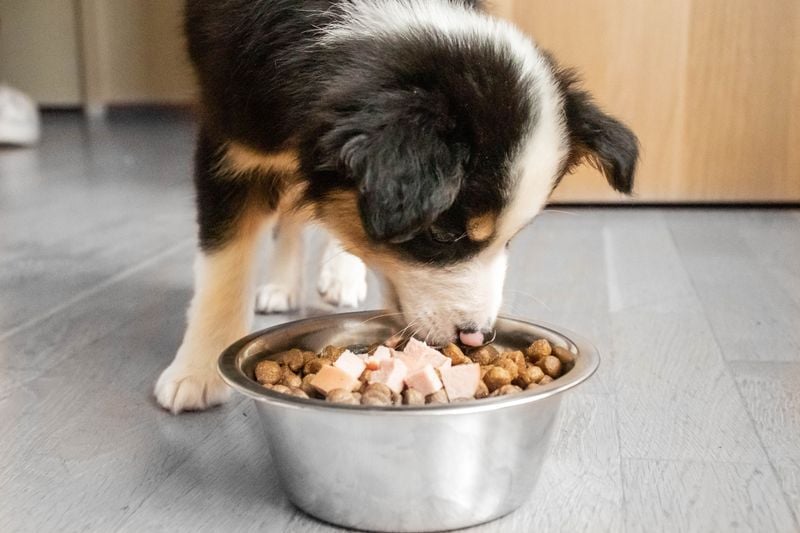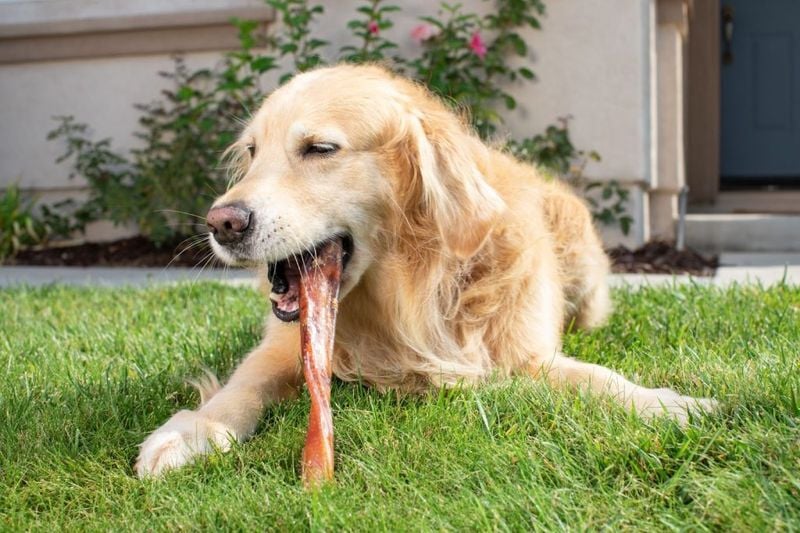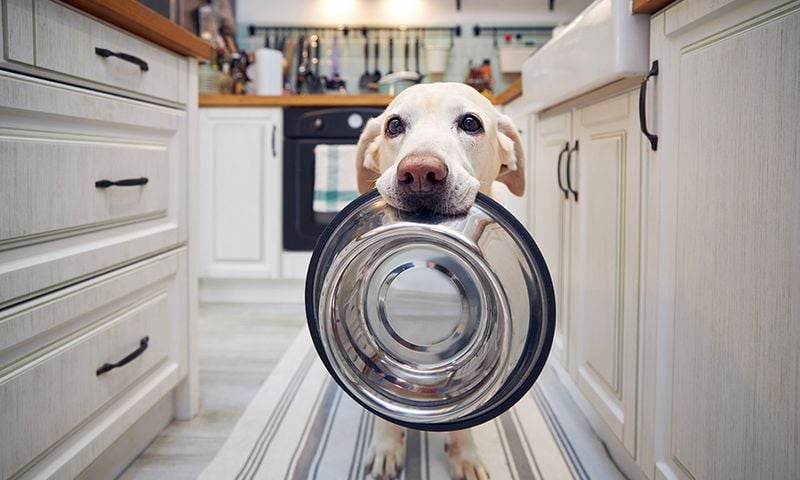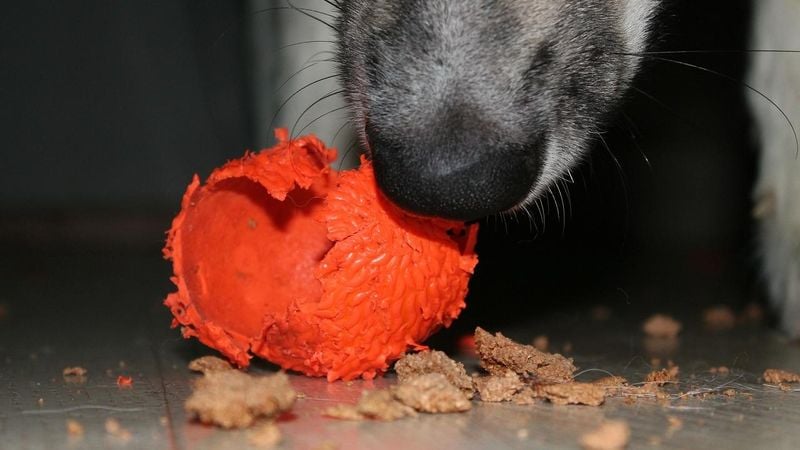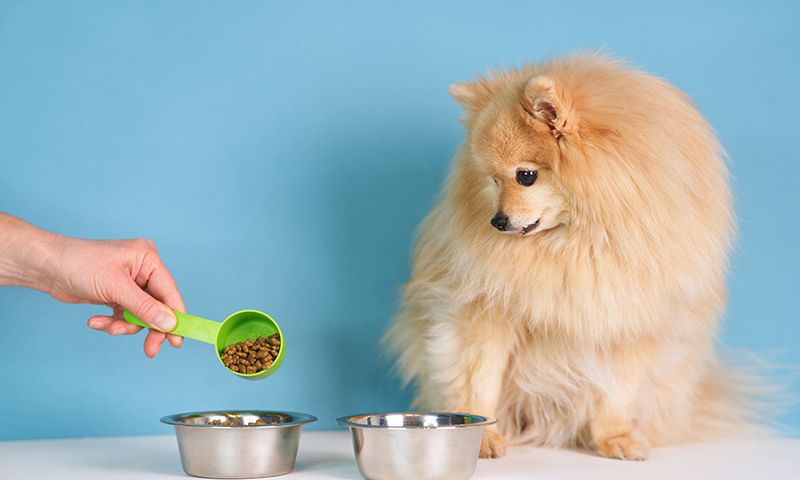Why Is My Puppy Always Hungry? 10 Vet-Approved Reasons You Shouldn’t Ignore
If you’ve recently welcomed a furry friend into your home, you might be wondering why your puppy seems to have an endless appetite.
That bottomless pit of a stomach can leave you questioning if something’s wrong or if this is just normal puppy behavior.
Understanding the reasons behind your puppy’s constant hunger is crucial for their health and development.
1. Growth Spurts Make Puppies Ravenous
Just like human teenagers, puppies experience intense growth periods that demand extra calories. Your little fur ball might be doubling in size every few weeks during their first months of life!
During these growth spurts, their energy requirements skyrocket as their bodies build bone, muscle, and other tissues at remarkable speeds. Most puppies will seem especially hungry during these phases.
Don’t be alarmed if your puppy seems hungrier during certain weeks than others. This natural cycle of increased appetite often corresponds with visible growth. However, always ensure you’re following appropriate feeding guidelines for your puppy’s breed and size.
2. Supercharged Metabolism Needs Constant Fuel
Puppies burn energy at astonishing rates. Their metabolism works overtime to support rapid growth, brain development, and their seemingly endless playtime activities.
A young dog’s metabolism can be up to three times faster than an adult dog’s. This metabolic furnace needs constant stoking with quality nutrition to keep your puppy healthy and developing properly.
While this hyperactive metabolism explains your puppy’s frequent hunger, it doesn’t mean unlimited feeding is appropriate. Instead, divide their daily recommended food amount into 3-4 smaller meals throughout the day to match their metabolic needs while preventing overfeeding.
3. Not Enough Calories in Their Diet
Sometimes the simplest explanation is correct—your puppy might actually need more food! Feeding guidelines on pet food packages are just starting points and don’t account for individual differences in activity level or metabolism.
Active puppies or those with certain genetic backgrounds may require significantly more calories than average. Working breeds like Border Collies or Labrador Retrievers often need additional fuel for their energy-intensive lifestyles.
Consult your veterinarian about adjusting portion sizes if your puppy shows healthy weight but constant hunger. They can help calculate the precise caloric needs based on your puppy’s specific circumstances and development stage.
4. Low-Quality Food Leaves Nutritional Gaps
Not all puppy foods are created equal. Bargain brands often contain fillers like corn and wheat that provide calories but lack essential nutrients your growing puppy needs.
When fed low-quality food, puppies may feel physically full but remain nutritionally hungry. Their bodies crave the missing proteins, fats, and micronutrients necessary for proper development, triggering continued hunger signals despite a full stomach.
Look for puppy-specific formulas with meat listed as the first ingredient. Quality foods might cost more upfront but often require smaller portions to meet nutritional needs, potentially saving money while satisfying your puppy’s true hunger.
5. Intestinal Parasites Stealing Vital Nutrients
Worms and other intestinal parasites are extremely common in puppies. These unwelcome guests essentially steal nutrition directly from your puppy’s digestive system, leaving them constantly hungry despite regular feeding.
Common signs include a ravenous appetite paired with failure to gain weight, pot-bellied appearance, or visible worms in stool. Many puppies acquire these parasites from their mother or environment before they even come home with you.
Regular deworming is essential preventative care for all puppies. Your vet should check stool samples at scheduled puppy visits to identify and treat any parasites promptly before they affect your puppy’s growth and development.
6. Diabetes Mellitus Causing Insatiable Hunger
Though uncommon in puppies, juvenile diabetes can develop and cause an insatiable appetite. This condition prevents glucose from entering cells properly, creating a state of cellular starvation despite adequate food intake.
A diabetic puppy typically shows increased thirst and urination alongside excessive hunger. You might notice your puppy drinking more water, having accidents despite being house-trained, or seeming constantly tired despite eating well.
If these symptoms appear alongside extreme hunger, seek veterinary care immediately. Early diagnosis through simple blood and urine tests allows for proper management through insulin therapy, diet changes, and monitoring to give your puppy the best chance at a normal life.
7. Hyperthyroidism Revving Up Appetite Engines
While rare in young dogs, hyperthyroidism can occasionally affect puppies. This condition causes the thyroid gland to produce excessive hormones that accelerate metabolism to unhealthy levels.
Affected puppies seem constantly famished yet may lose weight despite increased food consumption. Other signs include hyperactivity, increased heart rate, excessive panting, and difficulty settling down to rest.
Diagnostic blood tests can identify abnormal thyroid hormone levels. If your puppy shows these symptoms alongside persistent hunger, veterinary evaluation is essential for proper diagnosis and treatment, which may include medication, dietary adjustments, or in some cases, surgical intervention.
8. Anxiety Triggers Emotional Eating in Puppies
Just like humans, puppies can develop emotional eating habits in response to stress or anxiety. Food becomes a comfort mechanism, especially for puppies separated from littermates or experiencing major life changes.
Anxious puppies may appear constantly hungry when they’re actually seeking the comfort and security that comes with feeding time. This behavior often intensifies when left alone or during thunderstorms, fireworks, or other stressful situations.
Address the underlying anxiety rather than simply increasing food. Creating predictable routines, providing appropriate toys, using calming pheromone products, and ensuring adequate exercise can help reduce stress-related hunger and prevent unhealthy eating patterns from developing.
9. Learned Behavior Reinforced by Treat-Happy Owners
Sometimes we accidentally teach our puppies to act hungry! Those adorable begging eyes can be hard to resist, and many owners unwittingly reward food-seeking behaviors with treats or table scraps.
Puppies quickly learn that appearing hungry—through whining, pawing, or staring intensely at you during meals—results in extra food. This creates a cycle where your puppy isn’t physically hungry but has learned that acting hungry pays off.
Break this pattern by establishing consistent feeding times, avoiding food rewards for begging, and redirecting attention-seeking behavior to appropriate activities. Remember that affection and play are often what your puppy truly craves, not additional calories.
10. Malabsorption Issues Preventing Proper Nutrition
Some puppies suffer from digestive disorders that prevent them from properly absorbing nutrients from their food. Despite eating normal or even increased amounts, these puppies remain nutritionally deprived at the cellular level.
Signs of malabsorption often include constant hunger alongside loose stools, gas, weight loss or poor growth, and sometimes a dull coat. The food passes through their system without being properly processed, leaving them perpetually hungry.
Conditions like exocrine pancreatic insufficiency or inflammatory bowel disease require veterinary diagnosis through blood tests, stool analysis, or sometimes intestinal biopsies. Treatment typically involves special diets, enzyme supplements, and medications to help your puppy properly utilize the nutrients in their food.




